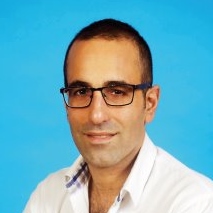click to dowload our latest edition
CLICK HERE TO SUBSCRIBE TO OUR NEWSLETTER


Published
5 years agoon
By
adminMOIRA SCHNEIDER
There are a number of professionals in South Africa who have made it their job to help these people achieve this goal. Among them are Advocate Avi Horesh and Nida Degutiene.
Horesh works to prove his clients are entitled to European citizenship, enabling them to obtain EU passports. For those wanting Polish citizenship, he tries to get documents from Poland to prove his clients’ parents, grandparents, or great-grandparents were Polish citizens after 1918, and after turning 18. In the case of attaining Lithuanian citizenship, he needs documents to prove the same, as well as the fact that his clients’ family was not registered as having lost their citizenship before 15 June 1940.
“Most important,” he stresses, “is that Polish and Lithuanian citizenship can be obtained only via citizens who left that country after 1918.”
“Obtaining documents in Poland or Lithuania usually depends on the amount of information you have,” he says. For Polish citizenship, the original citizen can’t have served in the South African army prior to 19 January 1951, because a requirement for Polish citizenship is that the original citizen did not serve in a foreign army prior to that date.
Degutiene of Next Steps specialises in tracking family roots in Lithuania and restoring Lithuanian citizenship. Not everyone with Lithuanian roots is eligible. “Unfortunately, the descendants of people who emigrated from the current territory of Lithuania [prior to 1918], which until 1918 was part of Russia, are not eligible to apply for reinstatement of Lithuanian citizenship,” she says.
“So either a person had to be born in Lithuania after 1918, or they had to have lived there and left as citizens of the country after 1918. There have been a few waves of emigration from Lithuania to South Africa, the first of which took place in the early 1900s.”
Any personal document, like a birth certificate, passport, or marriage certificate, issued by the Lithuanian authorities after 1918 would be proof of Lithuanian citizenship. It is important, she stresses, to be able to prove that one’s ancestor was a citizen of Lithuania, and departed between 1918 and 1940.
“We assess every case very carefully. We do full research in the Lithuanian archives, and check whether there are any legal obstacles for a person to get their Lithuanian citizenship reinstated.”
The initial verification is performed free of charge. They take on a case only if they are sure they can deliver. “Therefore our success rate is 100%,” Degutiene says.
Horesh says most South African Jews do qualify for European citizenship as they are descendants of emigrants who left Europe after 1918. In terms of Ashkenazi Jews (Polish and Lithuanian), he says his success rate is 100% once the documents are found, and once he recommends filing an application.
His success rate for obtaining Portuguese citizenship for Sephardi Jews, likewise, is 100%.
The cost depends on which citizenship is needed, and how many documents one already has. Generally speaking, the cost for the first passport is about 2 500 Euros, with the price decreasing as additional family members file applications.
The process takes on average between one and two years.
Next Steps works on a success fee basis. An initial fee covers processing of applications and submitting them directly to the relevant migration department. Only if and when the citizenship of an applicant is reinstated, does it charge a success fee.
Degutiene confirms that there is a “big” financial benefit to applying as a family versus individually, as multiple applicants can share certain costs that are fixed regardless of the number of applicants. “The bigger the number of applicants, the lower the fee per person.
“We charge fixed fees. We do not work on hourly rates, thus our clients know in advance how much the entire process will cost. We never ask for additional payment, even though some cases are extremely difficult, and require lots of additional time, cost, and attention.”
What are some of the difficulties encountered along the way? Often South African Litvaks think that if they do not possess the original documents of their ancestors, such as birth certificates or passports, they are not eligible to proceed, she says.
“We find about 98% of the documents in the Lithuanian archives! Sometimes we have difficulty in recreating the original spelling of the names and surnames of our clients’ ancestors, because the majority of them changed their names and dates of birth upon arrival in South Africa, but we are often able to resolve even the toughest puzzles.
“I would say the biggest problem South Africans encounter is the sometimes ridiculously long waiting time for their own personal documents to be received from the department of home affairs, such as unabridged birth certificates,” Degutiene says.
She notes that a Lithuanian passport is recognised as “very powerful” as there are 160 countries that allow such a passport holder to travel visa free.
